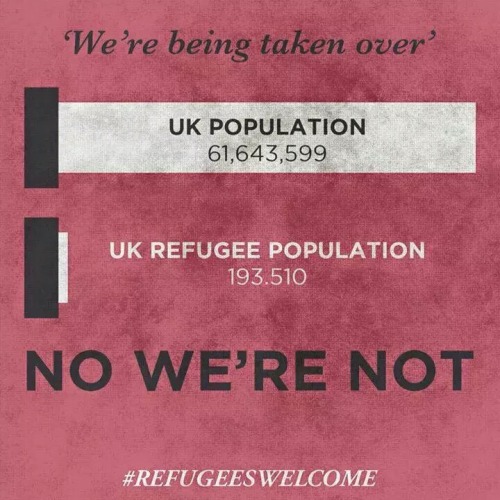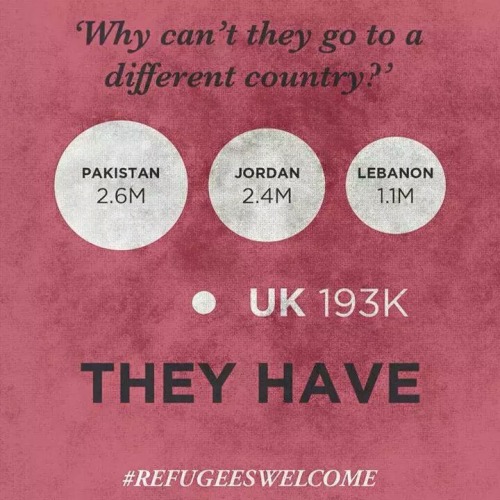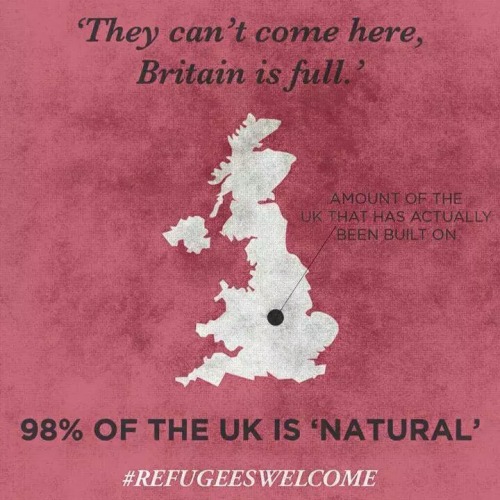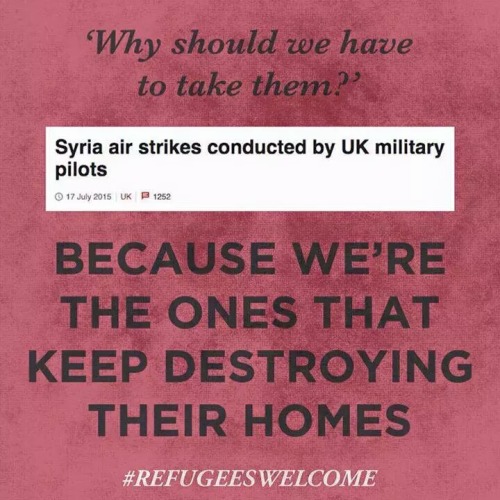This brave young woman is a citizen journalist who has been covering her trials and Tribulations of surviving in the Gaza Strip, and sharing them with the world.
Since Israel doesn’t want the world to continue watching what it is doing in Gaza, it seems killing the remaining Palestinian Press isn’t enough anymore. Israel expelled Al Jazeera, the media platform on through which Bisan reached the…
Category: international law
Listen to the CKMS interview of Mike Morrice and me!
Listen to the CKMS interview of Mike Morrice and me!
Canadians and Canadian residents: please sign and share this important petition to #RestoreUNWRA funding
https://www.ourcommons.ca/petitions/en/Petition/Details?Petition=e-4802
Canada should not be supporting a military coup in Venezuela

[guest post by Michael Nabert]
Venezuela’s electoral system has been widely praised. Until, of course, it became convenient for foreign powers to proclaim a result invalid.
Forbes: Venezuela’s Election System Holds Up As A Model For The World
Nicolás Maduro’s government actually requested that the UN send election observers to monitor the election and ensure a fair and honest vote. It was the faction that Canada and the US now support who opposed having UN observers present.
Reuters: Venezuela opposition asks U.N. not to send observers to May vote
Backing a coup in Venezuela is a violation of international law. Ask yourself how you would feel if a foreign nation proclaimed that they would decide for you who runs your country and ignore the results of your own elections.
Democracy Now: Former U.N. Expert: The U.S. Is Violating International Law by Attempting a Coup in Venezuela
For the sake of the Venezuelan people, the region, and for the principle of national sovereignty, these international actors should instead support negotiations between the Venezuelan government and its opponents.
The following open letter—signed by 70 scholars on Latin America, political science, and history as well as filmmakers, civil society leaders, and other experts—was issued on Thursday, January 24, 2019 in opposition to ongoing intervention by the United States in Venezuela.
The United States government must cease interfering in Venezuela’s internal politics, especially for the purpose of overthrowing the country’s government. Actions by the Trump administration and its allies in the hemisphere are almost certain to make the situation in Venezuela worse, leading to unnecessary human suffering, violence, and instability.
Venezuela’s political polarization is not new; the country has long been divided along racial and socioeconomic lines. But the polarization has deepened in recent years. This is partly due to US support for an opposition strategy aimed at removing the government of Nicolás Maduro through extra-electoral means. While the opposition has been divided on this strategy, US support has backed hardline opposition sectors in their goal of ousting the Maduro government through often violent protests, a military coup d’etat, or other avenues that sidestep the ballot box.
“Actions by the Trump administration and its allies in the hemisphere are almost certain to make the situation in Venezuela worse, leading to unnecessary human suffering, violence, and instability.”
Under the Trump administration, aggressive rhetoric against the Venezuelan government has ratcheted up to a more extreme and threatening level, with Trump administration officials talking of “military action” and condemning Venezuela, along with Cuba and Nicaragua, as part of a “troika of tyranny.” Problems resulting from Venezuelan government policy have been worsened by US economic sanctions, illegal under the Organization of American States and the United Nations ― as well as US law and other international treaties and conventions. These sanctions have cut off the means by which the Venezuelan government could escape from its economic recession, while causing a dramatic falloff in oil production and worsening the economic crisis, and causing many people to die because they can’t get access to life-saving medicines. Meanwhile, the US and other governments continue to blame the Venezuelan government ― solely ― for the economic damage, even that caused by the US sanctions.
Now the US and its allies, including Organization of American States (OAS) Secretary General Luis Almagro and Brazil’s far-right president, Jair Bolsonaro, have pushed Venezuela to the precipice. By recognizing National Assembly President Juan Guaido as the new president of Venezuela ― something illegal under the OAS Charter ― the Trump administration has sharply accelerated Venezuela’s political crisis in the hopes of dividing the Venezuelan military and further polarizing the populace, forcing them to choose sides. The obvious, and sometimes stated goal, is to force Maduro out via a coup d’etat.
The reality is that despite hyperinflation, shortages, and a deep depression, Venezuela remains a politically polarized country. The US and its allies must cease encouraging violence by pushing for violent, extralegal regime change. If the Trump administration and its allies continue to pursue their reckless course in Venezuela, the most likely result will be bloodshed, chaos, and instability. The US should have learned something from its regime change ventures in Iraq, Syria, Libya, and its long, violent history of sponsoring regime change in Latin America.
Neither side in Venezuela can simply vanquish the other. The military, for example, has at least 235,000 frontline members, and there are at least 1.6 million in militias. Many of these people will fight, not only on the basis of a belief in national sovereignty that is widely held in Latin America ― in the face of what increasingly appears to be a US-led intervention ― but also to protect themselves from likely repression if the opposition topples the government by force.
In such situations, the only solution is a negotiated settlement, as has happened in the past in Latin American countries when politically polarized societies were unable to resolve their differences through elections. There have been efforts, such as those led by the Vatican in the fall of 2016, that had potential, but they received no support from Washington and its allies who favored regime change. This strategy must change if there is to be any viable solution to the ongoing crisis in Venezuela.
For the sake of the Venezuelan people, the region, and for the principle of national sovereignty, these international actors should instead support negotiations between the Venezuelan government and its opponents that will allow the country to finally emerge from its political and economic crisis.
Signed:
Noam Chomsky, Professor Emeritus, MIT and Laureate Professor, University of Arizona
Laura Carlsen, Director, Americas Program, Center for International Policy
Greg Grandin, Professor of History, New York University
Miguel Tinker Salas, Professor of Latin American History and Chicano/a Latino/a Studies at Pomona College
Sujatha Fernandes, Professor of Political Economy and Sociology, University of Sydney
Steve Ellner, Associate Managing Editor of Latin American Perspectives
Alfred de Zayas, former UN Independent Expert on the Promotion of a Democratic and Equitable International Order and only UN rapporteur to have visited Venezuela in 21 years
Boots Riley, Writer/Director of Sorry to Bother You, Musician
John Pilger, Journalist & Film-Maker
Mark Weisbrot, Co-Director, Center for Economic and Policy Research
Jared Abbott, PhD Candidate, Department of Government, Harvard University
Dr. Tim Anderson, Director, Centre for Counter Hegemonic Studies
Elisabeth Armstrong, Professor of the Study of Women and Gender, Smith College
Alexander Aviña, PhD, Associate Professor of History, Arizona State University
Marc Becker, Professor of History, Truman State University
Medea Benjamin, Cofounder, CODEPINK
Phyllis Bennis, Program Director, New Internationalism, Institute for Policy Studies
Dr. Robert E. Birt, Professor of Philosophy, Bowie State University
Aviva Chomsky, Professor of History, Salem State University
James Cohen, University of Paris 3 Sorbonne Nouvelle
Guadalupe Correa-Cabrera, Associate Professor, George Mason University
Benjamin Dangl, PhD, Editor of Toward Freedom
Dr. Francisco Dominguez, Faculty of Professional and Social Sciences, Middlesex University, UK
Alex Dupuy, John E. Andrus Professor of Sociology Emeritus, Wesleyan University
Jodie Evans, Cofounder, CODEPINK
Vanessa Freije, Assistant Professor of International Studies, University of Washington
Gavin Fridell, Canada Research Chair and Associate Professor in International Development Studies, St. Mary’s University
Evelyn Gonzalez, Counselor, Montgomery College
Jeffrey L. Gould, Rudy Professor of History, Indiana University
Bret Gustafson, Associate Professor of Anthropology, Washington University in St. Louis
Peter Hallward, Professor of Philosophy, Kingston University
John L. Hammond, Professor of Sociology, CUNY
Mark Healey, Associate Professor of History, University of Connecticut
Gabriel Hetland, Assistant Professor of Latin American, Caribbean and U.S. Latino Studies, University of Albany
Forrest Hylton, Associate Professor of History, Universidad Nacional de Colombia-Medellín
Daniel James, Bernardo Mendel Chair of Latin American History
Chuck Kaufman, National Co-Coordinator, Alliance for Global Justice
Daniel Kovalik, Adjunct Professor of Law, University of Pittsburgh
Winnie Lem, Professor, International Development Studies, Trent University
Dr. Gilberto López y Rivas, Professor-Researcher, National University of Anthropology and History, Morelos, Mexico
Mary Ann Mahony, Professor of History, Central Connecticut State University
Jorge Mancini, Vice President, Foundation for Latin American Integration (FILA)
Luís Martin-Cabrera, Associate Professor of Literature and Latin American Studies, University of California San Diego
Teresa A. Meade, Florence B. Sherwood Professor of History and Culture, Union College
Frederick Mills, Professor of Philosophy, Bowie State University
Stephen Morris, Professor of Political Science and International Relations, Middle Tennessee State University
Liisa L. North, Professor Emeritus, York University
Paul Ortiz, Associate Professor of History, University of Florida
Christian Parenti, Associate Professor, Department of Economics, John Jay College CUNY
Nicole Phillips, Law Professor at the Université de la Foundation Dr. Aristide Faculté des Sciences Juridiques et Politiques and Adjunct Law Professor at the University of California Hastings College of the Law
Beatrice Pita, Lecturer, Department of Literature, University of California San Diego
Margaret Power, Professor of History, Illinois Institute of Technology
Vijay Prashad, Editor, The TriContinental
Eleanora Quijada Cervoni FHEA, Staff Education Facilitator & EFS Mentor, Centre for Higher Education, Learning & Teaching at The Australian National University
Walter Riley, Attorney and Activist
William I. Robinson, Professor of Sociology, University of California, Santa Barbara
Mary Roldan, Dorothy Epstein Professor of Latin American History, Hunter College/ CUNY Graduate Center
Karin Rosemblatt, Professor of History, University of Maryland
Emir Sader, Professor of Sociology, University of the State of Rio de Janeiro
Rosaura Sanchez, Professor of Latin American Literature and Chicano Literature, University of California, San Diego
T.M. Scruggs Jr., Professor Emeritus, University of Iowa
Victor Silverman, Professor of History, Pomona College
Brad Simpson, Associate Professor of History, University of Connecticut
Jeb Sprague, Lecturer, University of Virginia
Kent Spriggs, International human rights lawyer
Christy Thornton, Assistant Professor of History, Johns Hopkins University
Sinclair S. Thomson, Associate Professor of History, New York University
Steven Topik, Professor of History, University of California, Irvine
Stephen Volk, Professor of History Emeritus, Oberlin College
Kirsten Weld, John. L. Loeb Associate Professor of the Social Sciences, Department of History, Harvard University
Kevin Young, Assistant Professor of History, University of Massachusetts Amherst
Patricio Zamorano, Academic of Latin American Studies; Executive Director, InfoAmericasCommon Dreams: Open Letter by Over 70 Scholars and Experts Condemns US-Backed Coup Attempt in Venezuela
This work is licensed under a Creative Commons Attribution-Share Alike 3.0 License
For context, we can look at all of the other relevant examples of this sort of thing in the region, which have harmed democracy and cost many thousands of lives just to support corporate imperialism. Pretending that this time will be different is ludicrous.
I highly recommend making time to watch John Pilger’s excellent documentary about decades of US assaults on democracy in South America, “The War on Democracy” which can be watched for free on Vimeo here: https://vimeo.com/16724719
By restricting Venezuelans in Canada from casting their votes through the Venezuelan embassy, the Canadian government effectively deemed Venezuelan elections fraudulent before they even took place. This is not how international law works.
Venezuelan Analysis: Who Needs Elections? Ask the US About the Government Your Country Should Have
“Guatemala’s President, Jimmy Morales, dismantled a United Nations anti-corruption group and barred its head from entering the country.
“Honduras’s President, Juan Orlando Hernandez, took power in 2014 after a dubious election and violent crackdown on dissent, then ignored his country’s constitution to win re-election in 2017.
“Brazil’s new President, Jair Bolsonaro, has not only publicly attacked women, gay people, immigrants and people of colour, he has also expressed support for torture and his country’s military dictatorship.
“Colombia has witnessed the execution of 120 human-rights leaders in the past two years.
“Is Ms. Freeland promoting democracy in those countries?”
Globe and Mail: Canada’s leadership on Venezuela is misguided, misdirected – and a mistake

Read more:
TruthDig: The U.S. Is Orchestrating a Venezuelan Coup in Plain Sight
National Post: NDP leader Jagmeet Singh sows confusion on ‘sensitive’ Venezuela issue, contradicting party line
Green Party of Canada: Statement on the Situation in Venezuela
“Canada should not be supporting a military coup. It should be a voice for peace and dialogue.”
uruguayanabombada: yungsouthasian: Refugees Welcome And this…




Refugees Welcome
And this goes to all the other Western countries too
Nicely done.
Certainly goes for #Canada, too.
Not only has Canada taken in fewer refugees than even the UK (in spite of Mr Trudeau’s welcome tweet), our government is showing no interest in undoing the “Canada-U.S. Safe Third Country Agreement,” an agreement sought by Canada to keep down the potential number of refugees.
“Last year, Canada received less than 0.2 per cent of the overall refugee population in the world, according to the United Nations High Commissioner for Refugees (UNHCR).”
— Globe and Mail: Are asylum seekers crossing into Canada illegally? A look at facts behind the controversy [August 1st, 2018]
Meanwhile, Canada is the 5th biggest war spender in NATO.
If we can afford to destabilize other people’s countries, we can afford to accept the refugees such military interventionism causes.
uruguayanabombada: yungsouthasian: Refugees Welcome And this…




Refugees Welcome
And this goes to all the other Western countries too
Nicely done.
Certainly goes for #Canada, too.
Not only has Canada taken in fewer refugees than even the UK (in spite of Mr Trudeau’s welcome tweet), our government is showing no interest in undoing the “Canada-U.S. Safe Third Country Agreement,” an agreement sought by Canada to keep down the potential number of refugees.
“Last year, Canada received less than 0.2 per cent of the overall refugee population in the world, according to the United Nations High Commissioner for Refugees (UNHCR).”
— Globe and Mail: Are asylum seekers crossing into Canada illegally? A look at facts behind the controversy [August 1st, 2018]
Meanwhile, Canada is the 5th biggest war spender in NATO.
If we can afford to destabilize other people’s countries, we can afford to accept the refugees such military interventionism causes.